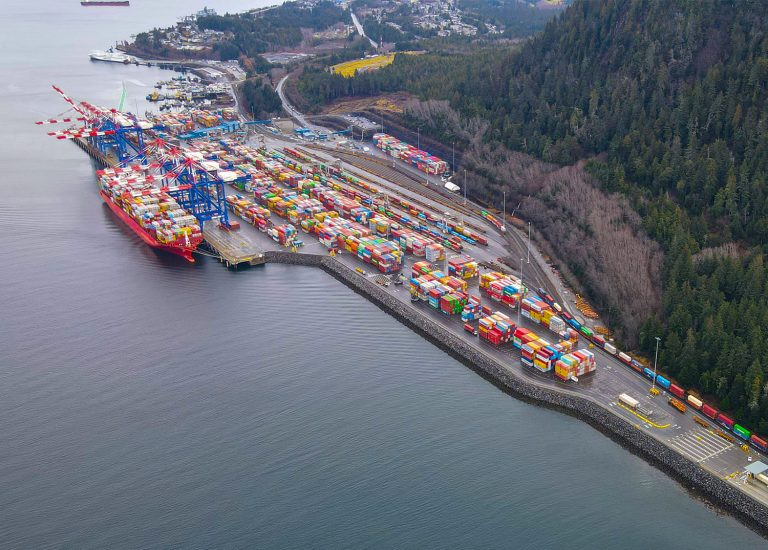Supporting Canada’s research talent pipeline
Business success, economic growth, and the overall prosperity of our country all depend on Canada’s ability to attract and retain the next generation of talent – including students at the postsecondary level.
What was a tight labour market pre-pandemic has now turned into a labour crisis, slowing down the country’s economic recovery and impeding growth. As the world’s economies recover from the pandemic, the global competition for talent is already escalating. As a result, Canada needs to take the initiative thoughtfully, but aggressively, to attract capable new students. It’s an essential step in bolstering the supply chain for talent.
But we have to do more than just attract talented students to our country. We need these talented people to stay in Canada. Recent grads from our educational institutions are among the world’s brightest. They are already here and integrated, they have begun to put down roots, and they have been trained with our credentials for our workforce.
If business drives job creation and growth, people are the engine. And to sustain that growth, Canadian businesses need to fill labour needs – they need to fill them yesterday.
Canada is falling behind in the race for talent
Canada is facing an acute talent crisis. Job vacancies are at all-time highs, yet graduate students are struggling to make ends meet, international students are waiting months for study permit approvals and undergraduates are searching for meaningful work opportunities to develop skills.
Universities, businesses, and students are aligned, calling on the government to prioritize early career research talent, reduce barriers for students to come to Canada, improve support and processing for international students in Canada, strengthen our international competitiveness in scientific research and development and the deployment of new technologies, improve and expand access to high-quality lifelong and work-integrated learning opportunities, and work to ensure more of our talented graduates remain in Canada.
Canada cannot afford to fall behind in the global race for talent.
It’s crucial to support Canada’s research talent pipeline by ensuring Canada’s next generation of young researchers is not left behind.
- Funding for graduate students through flagship federal programs like the Canadian Graduate Scholarships have not increased in two decades, losing over 50% of their value.
- Core funding for the Tri-Agency and Canadian Foundation for Innovation (TC+) expenditures flow directly and indirectly to graduate research through Discovery Grants, Insight Grants, and other direct support for fundamental science. As enrolment in graduate programs has increased, the TC+ expenditures have declined on a per student basis.
- As of 2022, Canada is spending approximately $17,000 per enrolled graduate student in Canada. This financial support has been declining in relative terms since 2003.
- The government must reinvest in Canada’s most promising early career research talent to support the creation of new ideas, patents and technologies that drive innovation and economic growth.
The federal government should strengthen Canada’s appeal as a global talent destination by reducing barriers for international students.
- Over the last year, visa processing backlogs have created delays of three or more months, with over 100,000 students’ applications still being processed. There is a very real prospect that universities and their communities all over Canada will be left unable to welcome thousands of the world’s most talented young people and researchers last fall.
- Every student with an offer of admission that chooses to study elsewhere because of delays in visa processing is a loss for our country, for our communities, for Canadian businesses, and for our future growth. Canada must act quickly to address this backlog and create a new service standard to process study and work permits for international students.
- When they do arrive in Canada, many international students face serious challenges in participating in Canadian life and creating lasting connections in their communities. The government should reconsider visa restrictions that prevent students from remaining in Canada after graduation and building careers in our country.
We need to grow Canada’s research ecosystem to compete globally and create opportunities to live and work in Canada.
- Canada is falling behind peer nations in investments in fundamental science. The US Chips and Science Act invests over $200 billion in fundamental science, including doubling the budgets of key granting agencies and increasing support for intramural research. Germany is on track to expand its research and development investment to 3.5% of GDP by 2025. The United Kingdom is planning to grow its R&D investments to 2.4% of GDP through its 2020 R&D Roadmap. Finland made a commitment in January 2022 to raise its R&D spending to 4% of GDP by 2030.
- Canada needs comparable ambition, beginning with a $1 billion annual re-investment into the people and processes that lead our federal research ecosystem. Core funding for the Tri-Agencies flows directly to early career research talent through Discovery Grants, Insight Grants, and other supports for basic research. Without these supports, Canada will struggle to develop the new ideas that drive innovation and expand our economy.
To be successful long-term, we need to build a more flexible Canada with national action on lifelong learning.
- Job vacancies have hit all-time highs this year, leaving employers scrambling to fill needed jobs. As Canada’s economy changes, demand for highly skilled workers in all sectors is increasing dramatically. In the second quarter of 2022, Canada had almost one million (997,000) unfilled jobs. This is the highest number on record, and employers don’t expect this crunch to end any time soon.
- In the digital economy alone, Canadian companies will have to fill 250,000 new jobs by 2025. From 2019 to 2028, jobs in the services sector will account for over 92% of new job creation, and as Canada transitions to a net zero economy, 15% of Canada’s workforce will experience disruption that requires new skills.
- Canada needs a strong, national framework for lifelong and work-integrated learning to ensure the labour force is equipped and flexible to meet the demands of emerging changes in the economy.
- Federal policy should aid students in gaining access to work-integrated learning opportunities during their post-secondary education. By expanding flexibility for all students (including international students) to find employment in their field of study during their education, post-secondary education will be better integrated into the labour force needs of Canadian businesses.
- At the same time, workers in vulnerable sectors, those looking to change careers, and mid-career professionals need more flexible access to short-term tailored programs that enhance their skillsets and improve their social mobility. These microcredential programs, aimed at sharpening skills and knowledge, are growing in their importance to the workforce.
- The federal government should act quickly to ensure national alignment on a microcredentials policy, as the European Union has done, to ensure programming is high quality and meets the needs of workers and employers.
For more information on Talent for Canada, please contact Diana Palmerin-Velasco, Senior Director, Future of Work.
A joint initiative by

Other Councils

Supply Chains Council

Chief Financial Officers Council





